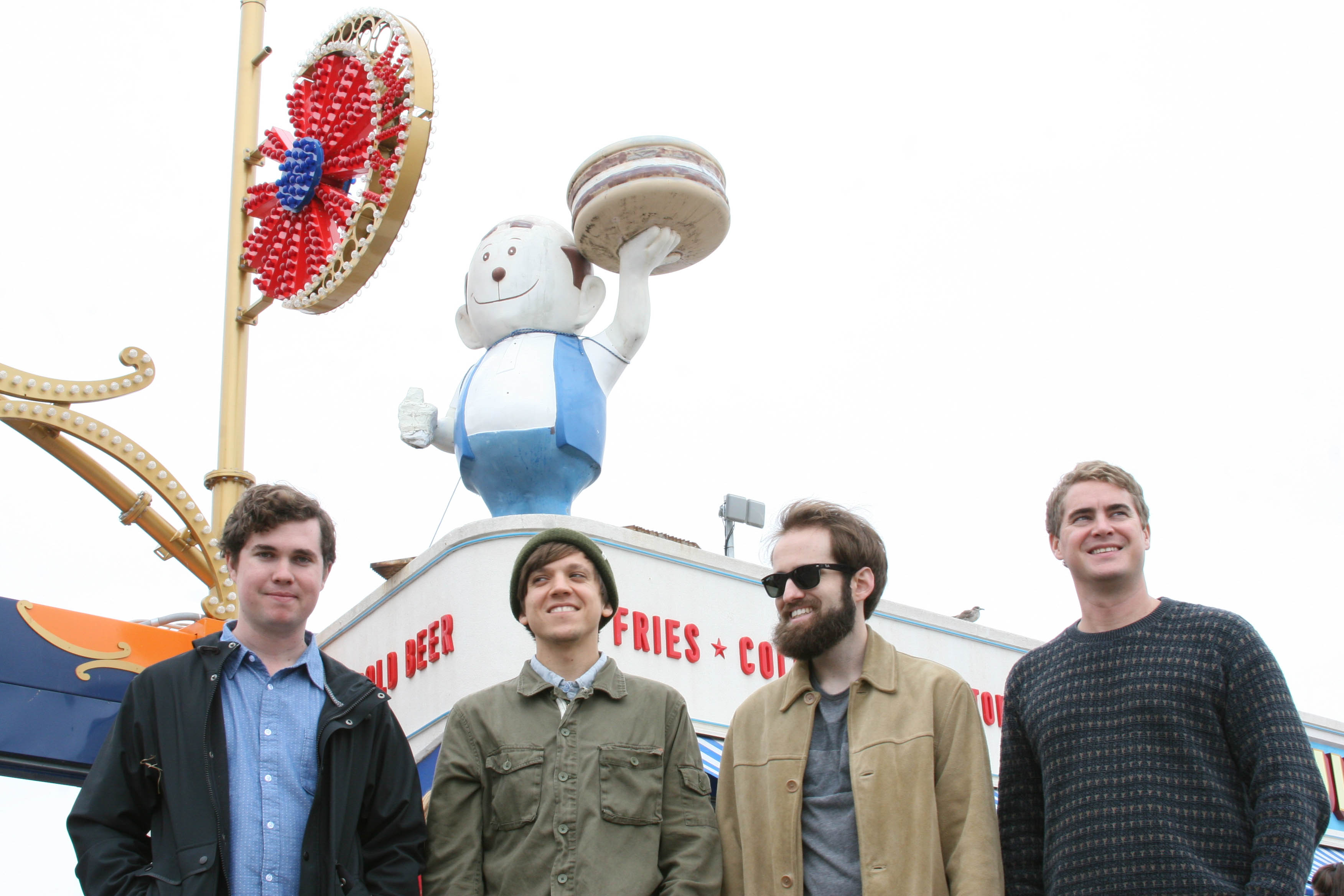Faced with a number of unexpected and harrowing changes, the Florida band perseveres
Alternative rock meets the Florida coast with Surfer Blood, who is gearing up to show the world what they can do by going back to their roots all the while blazing a new trail of sound on their new album, 1000 Palms.

Surfer Blood released their third record in May 2015, which has defined itself as a redemptive and optimistic album from a band of constant reinvention.
Since they formed in 2009, the band’s sound has shifted from a surf rock vibe to a more pop rock tune on their second album, Pythons.
Take the highly popular song “Swim” that splashed onto the scene and turned heads when it made it onto Pitchfork’s Top 100 Songs of 2009 list. “Swim” was included in 2010 on the band’s debut album, Astro Coast, an album composed of pounding chords, reverb and the feeling of tropical coastal weather.
Although the same basics of far-off vocals and power chords were brought over to Pythons, the album was treated to a lukewarm reception, being described as “disappointing” by Consequence of Sound and “insistent jangle” by Rolling Stone.
Following a split with their former major label Warner Brothers, 1000 Palms proves that back to basics with a few new tricks can make a difference. The band took a more independent and hands-on approach to producing, ditching big time labels and working with Joyful Noise Recordings.
“We had complete freedom and I feel like we actually wanted to try and do something with it,” said lead singer John Paul Pitts, or JP. “And I always think about writing [album opener] ‘Grand Inquisitor’; we were like ‘we should probably make this the first song on the record,’ which is something we probably wouldn’t have done before when we were on a bigger label with more people listening in and giving advice and stuff like that. I think we tried to push ourselves to try writing songs differently,” he said.
The 11 track album 1000 Palms proves to be more than just a series of repetitive basic chord progressions. From the hi-hat and dancing electric guitar-infused love ballad of “I Can’t Explain” to the fast, bongo beats in “Point Of No Return” and harmonizing bridges of “Into the Catacombs”, Surfer Blood shows variation throughout their songs while weaving in their classic electric guitar banter.
In its closing song, “NW Passage,” the combination of acoustic guitar and the sound of birds chirping transports the listener to a soothing summer drive through a wooded area in the wake of a sunset.
These last few years have proven to be particularly eventful for the band as time brought changes to the lives of individual members and the group as a whole, one unfortunate example being the sickness of original member and guitarist Thomas Fekete.
In the spring of 2015, the band announced that it would be starting a GoFundMe page for Fekete after he was diagnosed with sarcoma, a rare form of cancer. Through benefit concerts, online donations, donation collections from shows and more, Surfer Blood has raised thousands of dollars for their fellow bandmate.

In November 2015, the band also started the Thomas Fekete Medical Fund Benefit Auction, selling unreleased records and demos from groups such as The Doors, Cults and Yo La Tengo. The auction also includes a vinyl of “Tidal Wave” by Surfer Blood, a song recorded in 2015 that did not appear on 1000 Palms.
While Fekete takes a sideline from Surfer Blood, Mike McCleary is taking his place as guitarist for the current tour. The tour also features Lindsey Mills on bass seeing as original bassist Kevin Williams has since moved to pursue another career in Texas.
With the addition of McCleary and Mills, all four members of Surfer Blood come from the same high school.
“We’re lucky to have so many friends who are good musicians and truly fans of the music. They kind of get what we’re going for,” said Pitts.
“Tom had a very unique style of playing guitar but you know he can’t be in the band for obvious reasons right now. It is slightly different right now with a new guitarist, but I think that could be a good thing too. It keeps things interesting for me and hopefully people who come to our show who have seen us before will take something maybe slightly different away from it.”
Pitts explained that he goes for more for mood than replication when it comes to live performances and tour life. “I’ve never been too particular about trying to replicate the sound on the recording exactly live because … what I get from listening to a record at my house versus going to a show is so different that I think the music should reflect that a little bit too. We honestly do just jam out on stage quite a bit,” he said.
After a colourful past of opening for the Pixies, performing at festivals like Coachella 2014, and performing on Late Night With Jimmy Fallon in 2012, the future of the band looks positive though also unpredictable. “Who knows what we’ll do next,” said Pitts when asked about where he sees the band going in the next few years.
As “NW Passage” ends the album on a reflective and optimistic note, Surfer Blood’s future takes on the same hopeful hue: “And I’ll be there to see the day/You and I will grow, not decay.”
Catch Surfer Blood opening for Nate Ruess at the Virgin Mobile Corona Theatre on Nov. 17. Tickets are $30.



